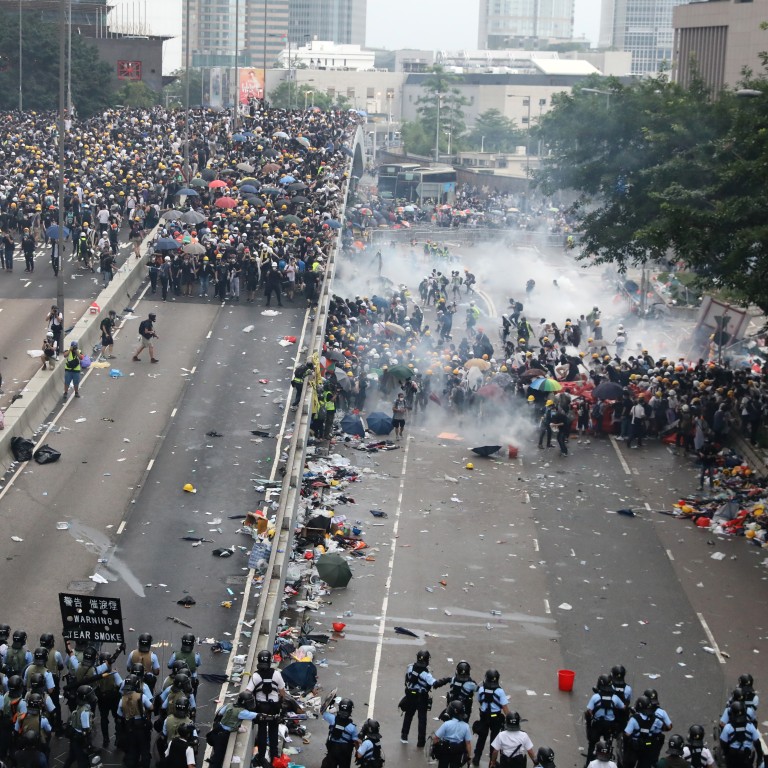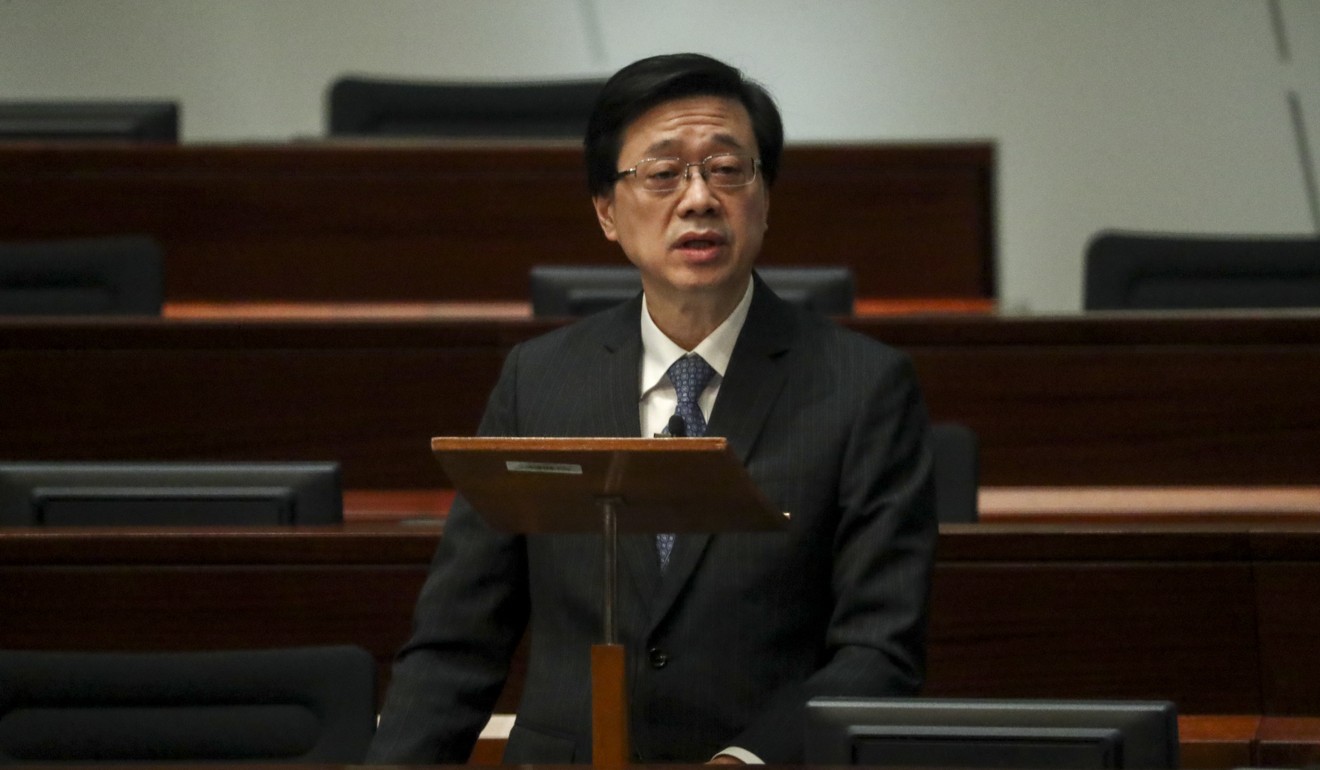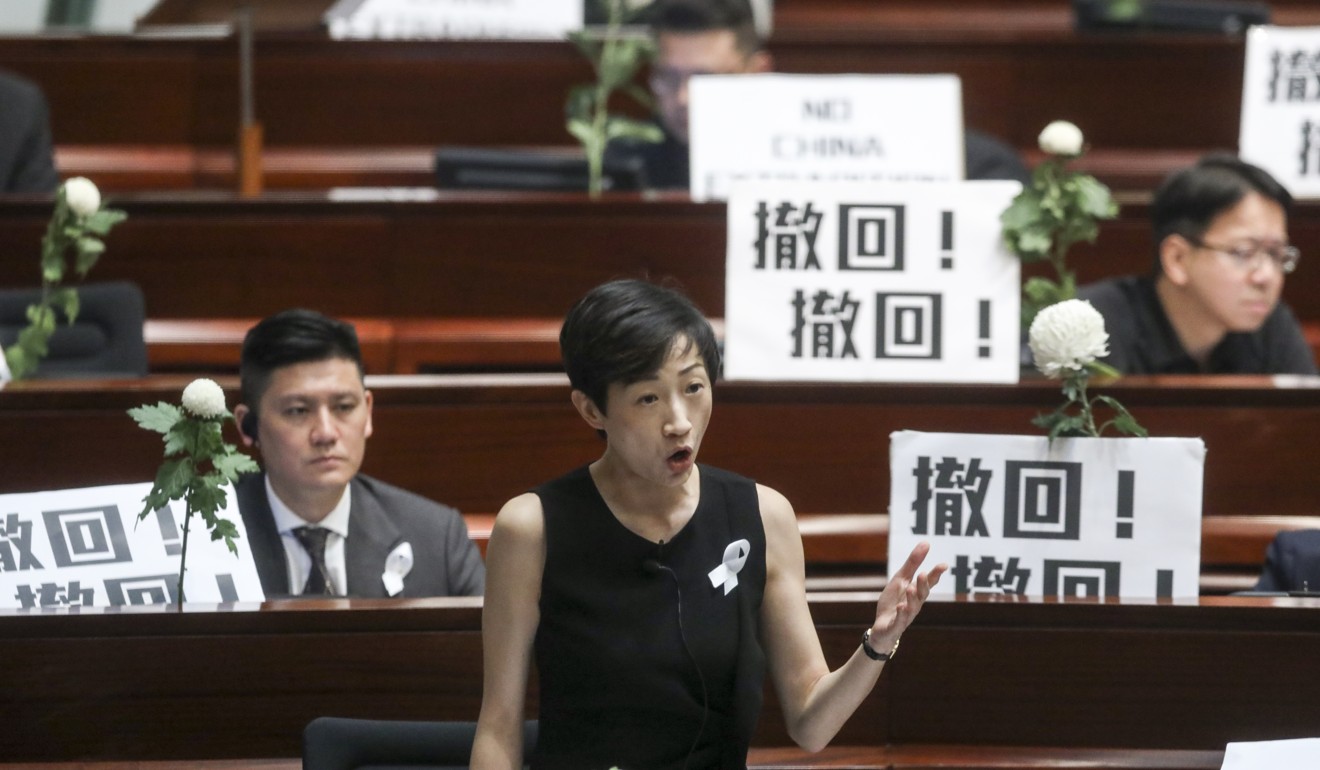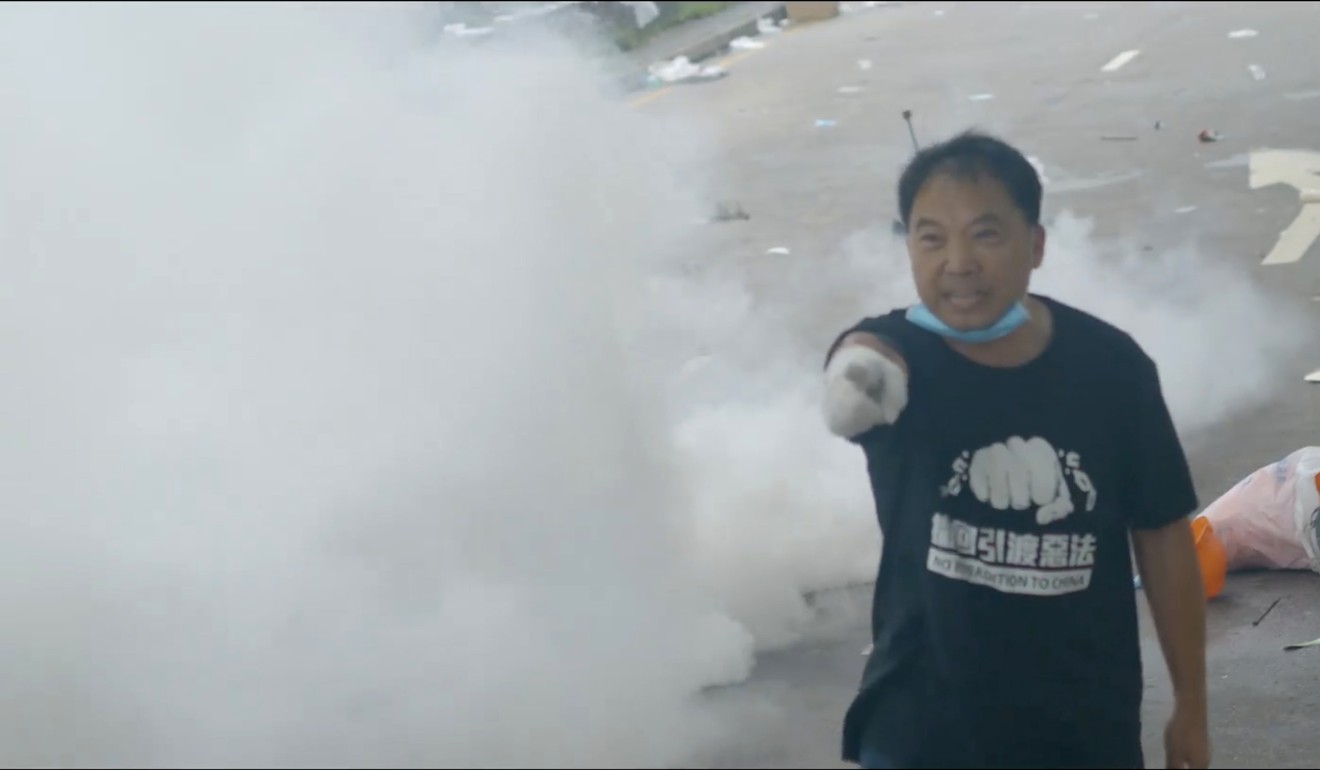
Don’t blame police for clashes, Hong Kong’s security chief says, while apologising for rifts caused by government’s handling of extradition bill
- John Lee grilled by pro-democracy lawmakers on Wednesday, angered by police actions during last week’s clashes outside Legco
- Lee dodges calls to step down and says justice department will review evidence and respect rule of law in any prosecution of protesters
Hong Kong’s security chief said on Wednesday the police should not take the blame for the political row over the controversial extradition bill, as he apologised to the public for the rift caused by the government’s handling of the proposal.
Secretary for Security John Lee Ka-chiu however, repeatedly dodged calls from the pro-democracy camp for him to step down, instead echoing Chief Executive Carrie Lam Cheng Yuet-ngor’s words that it was time for society to move on from the controversy.
“As part of the team overseeing the legislative amendment, like the chief executive, I’d like to apologise for the controversies and rifts it has caused in society,” Lee said. “If the public has any discontent with the government, please don’t vent it against our officers, because they were also threatened with violence.”
Lam on Tuesday offered her “most sincere apology” to all people in Hong Kong over the government’s deficiencies in handling the extradition bill.
Massive recent protests forced the government to announce on Saturday the suspension of the highly divisive bill, which would have allowed the transfer of suspects to mainland China and other jurisdictions without a prior extradition treaty. Despite the announcement, another mass protest went ahead on Sunday, attended by nearly 2 million people, according to organisers.
Police roll back on categorisation of Hong Kong protests as a riot
During clashes between police and tens of thousands of protesters last Wednesday, police fired 150 rounds of tear gas, double that fired in the 2014 Occupy protests. Rubber bullets and beanbag rounds were also used against protesters, who were pushing towards police defensive barriers.
Anger at police has also reached boiling point, where some frontline officers’ names and photos circulated widely online. Posts on internet forums also suggested finding out particulars of officers’ family members to put pressure on them.

Lee was grilled by opposition lawmakers for more than five hours on Wednesday during a question and answer session at the Legislative Council on the government’s refusal to withdraw the bill and the police’s alleged use of excessive force during last week’s clashes.
The meeting was adjourned abruptly at 4.15pm for lack of a quorum. While most pan-democrat lawmakers were in the chamber before the adjournment, only a few pro-establishment ones remained.
Hospital Authority denies leaking protesters’ data to police for arrests
“You have always been behind the push for the bill. First we had 1.03 million people, then 2 million people took to the street,” said lawmaker Tanya Chan, who wore black along with her allies to mourn the death last Saturday of a protester against the bill.
The security minister, who was a high-ranking police officer before joining the cabinet, acknowledged the public backlash and subsequent anxiety, but said any discontent with the government should not be directed at the police force.

“They were also treated violently [by protesters] … officers’ lives were threatened,” Lee said. He said police defence barriers were rushed by protesters, some of whom threw bricks and metal bars at officers after 3pm on Wednesday.
In Hong Kong protests, did police use excessive force or issue a proportional response?
That left them with little choice but to use minimum force like tear gas and rubber bullets, which was compatible with overseas standards, according to Lee.
In the heat of the clashes last Wednesday, one protester was shot in the eye, and reportedly could suffer permanent damage. Democratic Party leader Wu Chi-wai, who was the only man left standing at one juncture, was also tear-gassed.

“Were the police really left with no other option, but to shoot tear gas at me?” Wu asked angrily.
The police force has also come under fire because officers from the Special Tactical Squad did not have their numbers displayed on their uniforms, making it difficult for anyone to lodge a complaint.
But Lee refused to go into specifics of the confrontations, simply saying the force needed to collect evidence from witnesses and videos. “In a very chaotic situation, everything is in motion,” Lee said.
He also said the force’s Complaints Against Police Office (CAPO) would independently and fairly investigate any claims.
Hong Kong police ‘threatened, bullied and snubbed’ in public backlash
The police arrested 32 protesters in connection with the unrest, including five for rioting offences. In an apparent effort to pacify protesters, Lee on Wednesday refrained from mentioning the rioting arrests.
“Without prejudice to the justice system, we will try our best to be considerate to everyone who voiced their opinion to the government,” Lee said.
“We wish to heal social rifts as soon as possible.”
Pro-establishment lawmakers, meanwhile, pressed Lee to make clear the government would hold all violent protesters accountable.
“We express condolences to officers, journalists and young students injured in the protests,” said pro-Beijing lawmaker Leung Che-cheung. “But there were also violent clashes – will the government continue to bring the mob and its ringleaders to justice?”
Lee however struck a careful note that any prosecution would be based on evidence and independently decided by the Department of Justice.
“As always, we will respect the city’s rule of law,” Lee said. “The department will review the evidence and make a decision based on prosecutorial polices.”

